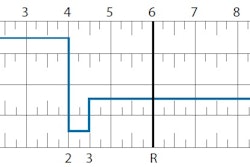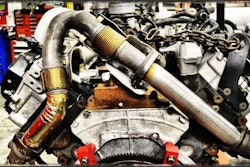Several Democratic Senators took up the push for guaranteeing overtime pay for long-distance employee truck operators by introducing the Guaranteeing Overtime for Truckers Act, which would repeal the motor carrier provision of the Fair Labor Standards Act of 1938, the longtime barrier to overtime pay for drivers.
“Truck drivers are the engines of our economy, ensuring that everything from consumer goods to commodities reach their destination on time,” said Senator Edward J. Markey (D-Mass.) in a press release. “Outdated labor regulations have denied these vital workers overtime, leading to high turnover and supply chain disruptions."
The bill was originally introduced in the House by Representatives by Andy Levin (D-Mich.) in April, but has since gone nowhere. In the Senate, Markey and Alex Padilla (D-Calif.) on Monday introduced the bill, which was co-sponsored by Senators Richard Blumenthal (D-Conn.), Bernie Sanders (I-Vt.), and Elizabeth Warren (D-Mass.).
Markey, like Levin in the house before him, cited the Department of Transportation's February 2022 Freight and Logistics Supply Chain Assessment, which called for the removal of the motor carrier exemption to the Fair Labor Standards Act of 1938, among other things.

Both House and Senate bills' focus on the 1938 law joins a growing chorus of political and regulatory bodies calling for drivers to get paid time-and-a-half after 40 hours of weekly work, something that's standard fare in other industries.
Owner-Operator Independent Drivers Association President Todd Spencer, speaking about the earlier House version of the bill, nodded to likely detention-improvement impacts to stem from the overtime pay exemption's removal, something researcher Travis Tokar and others writing for Overdrive in April signaled might well be a result -- with more value placed on drivers' time.
"For too long," said OOIDA's Spencer, "too many people throughout the supply chain" have been undervalued. “Shippers, receivers and carriers have never been forced to account for all the hours that they keep drivers waiting, since it costs them nothing to do so. By repealing the FLSA exemption, this bill would help make sure that drivers are compensated for all the hours they work."
The earlier House bill met with at least some bipartisan support -- a single Republican Senator from New Jersey cosponsored it, in addition to other Democrats. With the Senate bill just introduced on Monday, it's still too early to tell if the effort in the upper chamber will get the same reception. Despite the support for the House bill and the DOT urging it forward, it hasn't moved beyond committee referral in almost five months.
Senator Markey nodded to some trucking interests' objections to removing the FLSA's overtime exemption, urging constituents not to "be fooled by the trucking companies’ crocodile tears," he said. "There is a simple way to recruit and retain drivers: increase their pay. The Guaranteeing Overtime for Truckers Act does exactly that.”
Among other academics, Andrew Balthrop, a researcher at the University of Arkansas, previously wrote for Overdrive wrestling with the question of whether paying drivers overtime would improve or worsen trucking safety, reasoning that some drivers may be motivated by higher pay to drive an unsafe number of hours. But then again, most drivers are simply trying to hit revenue targets, and already spend hours upon hours unjustly detained at shippers and receivers without adequate compensation.
An Overdrive poll in 2021 found drivers ranking FLSA reform as their third most important priority, behind only truck parking and better funding for highways. Asked whether they supported removing the exemption for employee drivers this year, nearly 7 in 10 among Overdrive's mostly owner-operator readers said they would back the measure.
[Related: Overtime pay for employee drivers: Potential market benefits, drawbacks]











